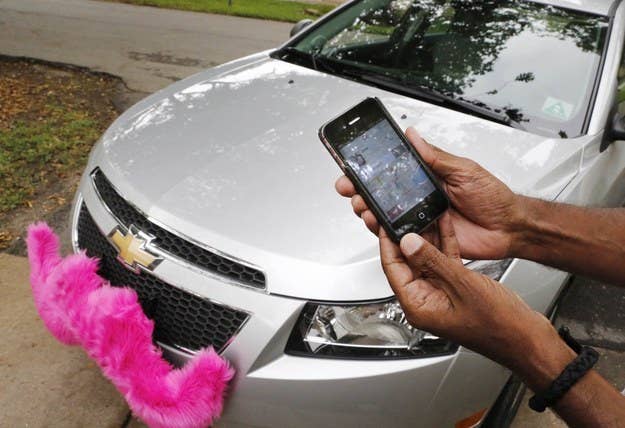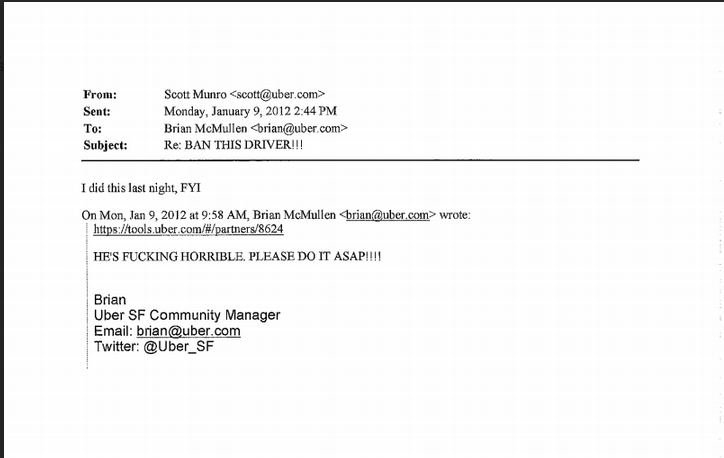
Lyft and Uber are facing separate federal lawsuits brought by drivers who contend they are misclassified as independent contractors and should be categorized and treated as formal employees. Although the cases are distinct, both involve similar issues. A win for the plaintiffs could compel Uber and Lyft to radically change their business models to treat drivers as employees and give drivers either hourly wages or salaries as well as benefits, and possibly reimburse them for expenses.
The summary judgment hearing for Lyft's case was held this morning in San Francisco Federal Court. This was just an initial step of a process in which the plaintiffs are seeking class action status. Although the plaintiffs have yet to indicate which damages they are seeking, they may eventually seek expense reimbursement.
"It's the most significant damages under California law," the plaintiffs' attorney in both cases Shannon Liss-Riordan told BuzzFeed News. "That includes [reimbursement for] owning or leasing their vehicles, gas, car maintenance... That alone is extremely significant for the drivers. What those companies have done is really shifted expenses for operating car services onto their drivers."
Liss-Riordan also told BuzzFeed News she's quite pleased with how the hearing went. "The judge seemed very skeptical of Lyft's argument," she said. "We look forward to seeing his decision."
Lyft declined to comment.
Lyft argues that drivers are independent contractors because they can choose when and how much they work. However, drivers contend that because they can be fired or deactivated without any notice, and because they are told how to behave and interact with passengers and risk termination if they don't follow those guidelines, then they should be treated as employees.
"Drivers also constantly receive emails from Uber, advising them about how to improve their ratings (so as not to be deactivated) or where to locate themselves to get customers, and warning them if they are at risk of suspension or deactivation for various reasons, including customer complaints, low customer ratings, cancelling [sic] too many rides, or for failing to accept enough rides while 'on-duty,'" the plaintiffs' opposition to Uber's motion for a summary judgment briefing reads. "While these 'best practices' are couched as 'suggestions,' a driver's failure to comply with them can lead to their termination."
As the IRS states: "You are not an independent contractor if you perform services that can be controlled by an employer (what will be done and how it will be done). This applies even if you are given freedom of action. What matters is that the employer has the legal right to control the details of how the services are performed. If an employer-employee relationship exists (regardless of what the relationship is called), you are not an independent contractor and your earnings are generally not subject to Self-Employment Tax."
"Most of the inquiry looks at how much control the company has and in both cases I think there's lot of evidence both companies have a lot of control over the drivers," Liss-Riordan said.
Uber requested that documents submitted by the plaintiffs, such as emails, be sealed because they would "expose trade secrets" and because it infringed on the privacy of the individuals named in the emails submitted, but Judge Edward Chen rejected the request, stating that names could be redacted and that there were no instances of information that could reveal trade secrets present.
Judge Chen is presiding over the hearing for the plantiff's' case against Uber while Judge Vince Chhabria presided over the hearing against Lyft. Uber will go to court tomorrow afternoon.
Uber did not respond to a request for comment from BuzzFeed News.


The plaintiff's attorney Shannon Liss-Riordan told BuzzFeed News that she and the plaintiffs were pleased with how Uber's hearing went and that it's likely the case will be heard in front of a jury. .
"The hearing just ended," she said. "It's very clear Judge Chen will deny Uber's motion."
Both cases will be heard in front of a jury, U.S. District Judges Edward Chen and Vince Chhabria ruled separately.
"California's outmoded test for classifying workers will apply in cases like this," Judge Chhabria, who presided over the Lyft case, wrote. "And because the test provides nothing remotely close to a clear answer, it will often be for juries to decide."
The trials are not scheduled yet and the next step, according to the plaintiffs' attorney Shannon Liss-Riordan, is class certification for both cases.
"For Uber, the company will argue that many drivers will not be able to benefit from the case because they are bound by an arbitration clause that requires them to arbitrate their claims individually," Liss-Riordan told BuzzFeed News. "In the event that the court enforces the arbitration clause (which has not been reached yet), we are planning to file individual arbitrations and drivers are signing up with us now to do that – hundreds of drivers have already been in touch with us."
